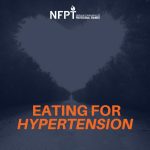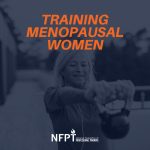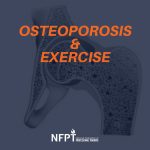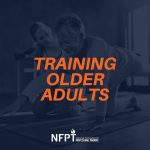What happens when certified personal trainers provide exercise possibilities are brought to marginalized and underserved communities?
According to the US Census Bureau, the number of citizens falling within the Bureau’s definition of “poor” increased by 3.7 million between 2008 and 2009, with one-third of those individuals being children.
While paying close attention to the fact that physical exercise can improve health, it often goes unrecognized that lifestyle improvement must extend far beyond exercise equipment. The powerful aspect of personal responsibility is quite often the most difficult piece of the puzzle to address.
While underserved communities could benefit greatly from cost-effective means for providing exercise and wellness services, taking advantage of such services remains the responsibility of the individual. He or she is the one who must desire change, and cultivate the motivation and inner fortitude to make positive changes. This is where a health coach or personal trainer may prove most valuable.
A Population Falling Through The Cracks
For a good percentage of homeless individuals and those living within extremely low-income brackets, chronic health problems are rampant. As one might expect, over time this fosters feelings of social isolation, helplessness, and loneliness.
If such a demographic was offered an opportunity to work with a health and fitness coach, the possibility exists for these individuals to feel an all-new positive sense of self. Now, imagine such a scenario where a coach who is willing and able to help them identify goals is actually a reality, and learning to access these health goals through proper coaching becomes one step closer.
Over time, such intervention can pave the way for transitioning poverty-level individuals from passive recipients simply draining public health services to a more empowered population who seizes control over self-care. Personal trainers possess the power to make this happen.

Progress is Challenging…But Not Impossible
Health coaching this population requires both a dedicated and a delicate approach. Success has been found when a trainer attempts to get the client thinking proactively: what does he really want to do? It is not always easy to resist the temptation to launch into what we know to be “the right choices”, also known as the “righting reflex”.
Yes, we all possess that automatic reflex when working with clients! However, gentle prompting might evoke an honest response from an impoverished individual. For example, if weight loss was an expressed goal and the client admits to having jumped on a fad bandwagon, a trainer or health coach might inquire whether the client has had any success with such a plan.
Even if the resources are lacking to partake in what we know can be a costly proposition – the inclusion of organic fruits and vegetables, lean protein, etc. in one’s meal plan—the door has been cracked open just enough for the trainer to provide guidance on the basics of healthier nutrition.
Let’s Try a Different Approach
Healthcare personnel tend to regard impoverished individuals as those needing to be cured, or “fixed”. In contrast, coaches and trainers know that the optimal solutions for whatever problems exist typically lie within the clients themselves.
Contrary to medical models once again, training in this environment allows a coach to follow the client’s agenda, even if aspects of it may seem questionable to the coach. However, recognizing that change and improved fitness in this demographic will be different than training clients in an affluent gym and extends beyond the exercise itself, conversations support the client discovering his own values, purpose, and goals. This in itself is of tremendous value.
Getting Started: Identify The Need
Once a trainer realizes that working in underserved neighborhoods is a passion he wishes to pursue, setting up an effective yet cost-conscious program can be daunting. Often what is required is a small amount of capital and an idea.
Camp Forging Youth Resistance is a shining example of this. What started as a small-operation gym in a borrowed space has turned into a growing national chain aimed specifically at impoverished youth, thanks to the ingenuity and proactive thinking of founder Steve Liberati.
Initially known as Steve’s Club Camp FYR has served for the past several years as a CrossFit hub/community empowerment center in Camden, NJ, commonly regarded as one of the most dangerous cities in the country. Mr. Liberati saw a need to bring out motivation in kids with few resources and seized the opportunity to give back to a frighteningly poverty-stricken area.
“I got to meet a lot of kids and got to learn they have a lot of similar backgrounds, motivation, goals and dreams,” said Liberati. “They just didn’t have the means or the support they needed to succeed.”
According to a report published by the pharmaceutical giant Bristol-Myers Squibb, families with a household income less than $15,000 are three times more likely to live sedentary lifestyles. The same report cites lack of access to recreation sites along with a general perception of an unsafe neighborhood as large factors in reduced physical activity for people trying simply to make ends meet.
Liberati surmised that promoting and facilitating exercise in low-income areas could be a solution to the disproportionately high incidence of health problems found in such areas. He is also setting his sights on the next chapter of these children’s lives. He adds, “Hopefully what they learn here they can apply to other aspects in life.”
The Right Plan Can Foster Success
Do you have what it takes to tackle the problem of integrating fitness into the lives of impoverished and underserved populations? Experts suggest taking the following points into consideration:
- What retention strategies might you employ to keep in contact with the individuals?
- Might you be willing to write and submit a grant to appropriate organizations, in order to offset your start-up cost?
- What incentives could be offered to keep motivation high?
- Is there a possibility of providing some method of transportation to your facility if necessary?
- Will childcare be available?
- In the absence of a brick-and-mortar gym, how creative are you at designing a workout space in a public park?
- Might you enlist the help of other fitness trainers/coaches, or neighborhood professionals such as mayors, police chiefs, school teachers?
- Can you be sensitive to and respectful of one’s challenging life situation?
After considering how realistic it would be for you to achieve/provide a stable, welcoming, effective, and non-judgmental fitness platform, you are on your way to making a true difference in the lives of others. As personal trainers and fitness professionals, we can work to reduce socioeconomic disparities and increase the levels of health and fitness for low-income communities.
ARTICLE REFERENCES:
- https://scholar.google.com/scholar?q=underserved+populations+fitness&hl=en&as_sdt=0&as_vis=1&oi=scholart&sa=X&ved=0ahUKEwiYyfTxidPWAhUp9IMKHbhUAVgQgQMIJjAA
- https://scholar.google.com/scholar?hl=en&as_sdt=0,26&as_vis=1&qsp=2&q=%22worksite+wellness+programs%22+underserved+populations
- http://www.health.com/health/article/0,,20411404,00.html
- https://www.ncbi.nlm.nih.gov/pmc/articles/PMC3833542/
- https://health.usnews.com/wellness/fitness/articles/2017-02-27/4-strategies-for-exercising-if-you-live-in-a-low-income-neighborhood
- https://www.ncbi.nlm.nih.gov/pmc/articles/PMC2769542/
- https://www.ncbi.nlm.nih.gov/pmc/articles/PMC3717650/
- https://www.ncbi.nlm.nih.gov/pmc/articles/PMC2974565/
- http://www.nbcphiladelphia.com/news/local/Fitness-Program-Offers-Solution-To-Disadvantaged-Teens-in-Camden-277049831.html








